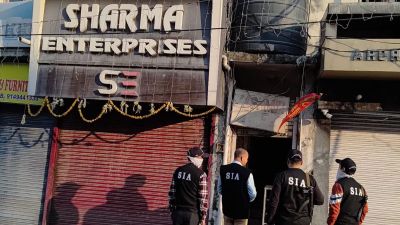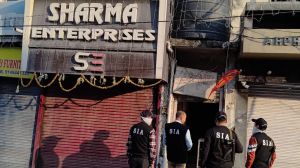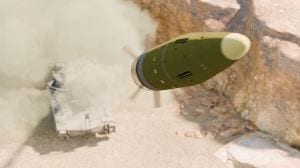Tips on tackling terror ever since September 11
Against the backdrop of terrorist attacks in the country, India is looking towards Israel to share tactics and strategy to deal with human b...

Against the backdrop of terrorist attacks in the country, India is looking towards Israel to share tactics and strategy to deal with human bombs.
In fact, much ahead of Prime Minister Ariel Sharon’s visit this Sunday, counter-terrorism has become the leitmotif of India-Israel bilateral relations with both countries sharing information on tackling suicide attacks, human bombs, airport and aircraft security, border control, ‘‘communal incitement’’ and counter-insurgency operations.
The co-operation has been on a variety of fronts:
• As early as 9/11, National Security Advisor Brajesh Mishra and his then visiting Israeli counterpart Major General (Retd) Uzi Dayan decided to set up a Joint Working Group on Counter-Terrorism. Two meetings were held in January and May, 2002, the next one has been fixed for November 21-22 and will be finalised during Sharon’s visit.
• Last December, Dayan briefed top officials from the MEA, Home ministries and Intelligence agencies on how Israel deals with human bombs and suicide attacks. Israel has been the target of more than 70 suicide attacks in the past three years, there have been 11 suicide attacks in Jammu and Kashmir this year.
• Dayan’s successor and former Mossad chief Afrahim Halevi carried forward the process. In April this year, senior Indian Army, police and intelligence officials attended an Israel seminar on strategy to deal with ‘‘human bombs and suicide attacks.’’
• Last November, Director General (CISF) exchanged views with his Israeli counterpart on airport and aircraft security at a seminar in Tel Aviv.
Sources say that while Israeli tactics on ‘‘human bombs’’ is tailored to its unique requirements, New Delhi hopes to tap into Tel Aviv’s ways of tracking terror financing.
Another key area that New Delhi has looked into are the ‘‘incitement laws’’ in Israel.
While India has Section 153 A and B of the IPC to deal with communal incitement, Tel Aviv has tough laws to tackle persons or groups who incite people to terrorist acts. In fact, Israel presented a paper on its laws on communal incitement at the JWG meeting.
Both sides are also working on how to monitor the borders to prevent infiltration.
Top Indian Army generals including General N C Vij (when he was the Vice Chief) have visited the Israeli side of the Golan Heights.
In fact, Israel has equipped Indian Army and the BSF with sensitive sensors and thermal imagers in Jammu and Kashmir.





- 01
- 02
- 03
- 04
- 05


























